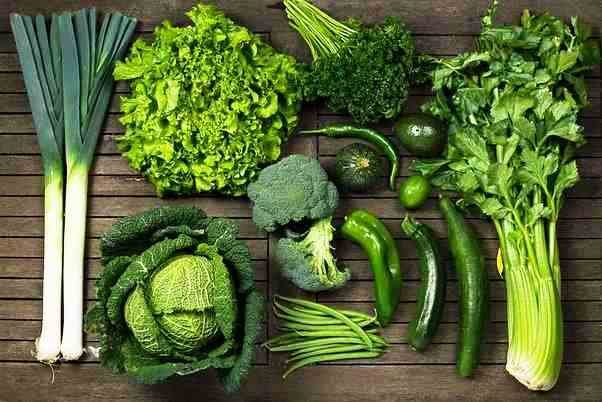When it comes to our food choices, we all want to make the healthiest decisions. In this blog, we will delve into the nutritional value of organic and hydroponically grown vegetables, shedding light on the benefits of each. Organic vegetables are cultivated using natural methods without the use of synthetic fertilizers or pesticides, which may appeal to those seeking a more natural and environmentally friendly option. On the other hand, hydroponically grown vegetables are nurtured in a controlled environment, where nutrients are delivered directly to the plants’ roots. By exploring the mineral and vitamin content of these two types of vegetables, we aim to provide you with a better understanding of which option may be best for your nutritional needs.
Understanding Organic Vegetables: Benefits and Nutritional Profile
Organic vegetables have gained popularity due to their perceived benefits for both personal health and the environment. These vegetables are cultivated using organic farming practices, which exclude the use of synthetic fertilizers, pesticides, and genetically modified organisms (GMOs). By relying on natural methods, organic farmers promote soil health and biodiversity, reducing the impact on ecosystems.
One significant advantage of organic vegetables is their potentially higher nutritional value. Studies suggest that organically grown produce may contain more vitamins, minerals, and antioxidants compared to conventionally grown counterparts. This can be attributed to the healthier soil conditions and the absence of chemical inputs, which allow the plants to develop a stronger defense mechanism and produce more phytochemicals.
Furthermore, organic farming methods prioritize soil quality, emphasizing the use of compost and organic matter. This approach enhances soil fertility and structure, leading to improved nutrient content in the vegetables. Organic farmers also focus on crop rotation and companion planting to naturally control pests and diseases, which can contribute to the overall health and vitality of the plants.
The Science Behind Hydroponically Grown Vegetables: How Are They Grown?
Hydroponically grown vegetables are cultivated using an innovative method that eliminates the need for soil. Instead, plants are grown in a nutrient-rich water solution, allowing their roots to directly absorb essential minerals and vitamins. This soilless farming technique relies on carefully controlled environments, where factors such as temperature, light, and pH levels are optimized for optimal plant growth. The plants are typically housed in a greenhouse or indoor setting, where artificial lighting systems provide the necessary spectrum and intensity for photosynthesis.
Nutrients are delivered to the plants through the water solution, ensuring they receive the precise balance of essential elements. This controlled environment allows for year-round production and efficient water usage, making hydroponics a promising solution for sustainable agriculture.
Comparing Mineral Content: Organic vs. Hydroponic Vegetables
When it comes to mineral content, there are some key differences to consider between organic and hydroponically grown vegetables. Organic vegetables benefit from the natural composition of the soil, which tends to be rich in minerals. As a result, they often contain a diverse range of minerals such as calcium, iron, magnesium, and zinc. The nutrient-rich soil provides a favorable environment for plants to absorb these minerals and incorporate them into their structure.
On the other hand, hydroponically grown vegetables rely on a nutrient solution that is carefully formulated to provide the necessary minerals. While the nutrient solution can be precisely controlled to ensure optimal mineral levels, it may not contain the same variety of minerals found in organic soil. However, hydroponic systems offer the advantage of delivering nutrients directly to the plant roots, allowing for efficient absorption.
It is important to note that the mineral content of vegetables can also be influenced by factors such as the specific crop variety, cultivation practices, and the quality of the nutrient solution used in hydroponics. Additionally, the mineral content of vegetables can vary based on the maturity of the plant and other environmental factors.
In conclusion, while organic vegetables have the advantage of naturally occurring minerals in the soil, hydroponically grown vegetables can provide precise and efficient delivery of nutrients. The choice between the two ultimately depends on individual preferences and priorities, considering factors such as environmental impact, farming practices, and overall nutritional needs.
Vitamin Content Analysis: Organic vs. Hydroponically Grown Vegetables
When it comes to vitamin content, comparing organic and hydroponically grown vegetables reveals some interesting insights. Organic vegetables, cultivated in nutrient-rich soil, often contain a diverse range of vitamins. This can be attributed to the natural composition of the soil, which provides an environment conducive to vitamin synthesis within the plants. As a result, organic vegetables may contain higher levels of vitamins such as vitamin C, vitamin A, and certain B vitamins.
In contrast, hydroponically grown vegetables rely on a carefully controlled nutrient solution for their vitamin intake. While the nutrient solution can be tailored to provide the necessary vitamins, the variety and quantity may not be as extensive as what can be found in organic vegetables. However, hydroponic systems offer the advantage of delivering nutrients directly to the plants, potentially enhancing their absorption and utilization.
It’s important to note that the vitamin content of vegetables can also be influenced by factors such as the specific plant variety, cultivation practices, and environmental conditions. Additionally, the vitamin content of vegetables can vary at different stages of plant growth and in response to other external factors.
Ultimately, the choice between organic and hydroponically grown vegetables for higher vitamin content depends on various factors, including personal preferences, availability, and individual nutritional requirements. It is recommended to include a variety of fresh vegetables in your diet to ensure a balanced intake of essential vitamins and minerals.
Evaluating Pesticide and Chemical Residue Levels: Organic vs. Hydroponic Vegetables
When it comes to pesticide and chemical residue levels, there are notable distinctions between organic and hydroponically grown vegetables. Organic vegetables, cultivated without the use of synthetic pesticides or chemical fertilizers, typically have lower pesticide residue levels. The organic farming approach focuses on natural pest control methods, such as crop rotation and companion planting, to minimize the need for chemical interventions. On the other hand, hydroponically grown vegetables, which are cultivated in controlled environments, generally have minimal to no pesticide residues. The absence of soil in hydroponics reduces the likelihood of contamination from pesticide residues present in the environment. However, it is important to note that specific farming practices and the use of approved substances can influence pesticide residue levels in both organic and hydroponic vegetables. Regular adherence to food safety guidelines, such as proper washing and handling, ensures further reduction of potential residues, providing consumers with healthy and safe vegetable options.
Environmental Impact: Considerations for Organic and Hydroponic Farming
When it comes to environmental impact, both organic and hydroponic farming methods have distinct considerations to take into account. Organic farming emphasizes sustainable practices that promote soil health, biodiversity, and reduced chemical inputs. By avoiding synthetic fertilizers and pesticides, organic farming aims to minimize negative impacts on ecosystems, water quality, and wildlife. Additionally, organic farming often includes techniques like crop rotation and composting, which contribute to long-term soil fertility and carbon sequestration.
On the other hand, hydroponic farming can be more resource-efficient in certain aspects. By growing plants in a controlled environment, hydroponics requires less water compared to traditional soil-based agriculture. Hydroponic systems also have the potential to minimize the use of land and reduce the need for herbicides or pesticides. However, the energy-intensive nature of indoor lighting and climate control systems in hydroponics can offset some of these environmental benefits.
To make an informed decision about the environmental impact of organic and hydroponic farming, it is crucial to consider the specific context and practices employed. Factors such as energy sources, waste management, and the overall ecological footprint of the production system should be taken into account.
Health and Safety Considerations: Organic and Hydroponic Vegetables
When it comes to health and safety considerations, both organic and hydroponic vegetables offer certain advantages.
Organic vegetables are cultivated without the use of synthetic fertilizers, pesticides, or genetically modified organisms (GMOs). This makes them a favorable choice for individuals concerned about potential exposure to chemical residues. By relying on natural farming practices, organic vegetables may have lower pesticide levels, reducing the risk of pesticide-related health effects. Additionally, organic farming practices often prioritize soil health, which can lead to improved nutrient content and potentially enhanced nutritional value in the vegetables.
On the other hand, hydroponically grown vegetables are cultivated in a controlled environment, which allows for precise management of nutrients, water, and light. This controlled environment reduces the likelihood of contamination from external sources, such as soil-borne pathogens or heavy metals. Hydroponic systems also eliminate the need for soil, which can be a potential source of microbial contamination. The controlled conditions of hydroponics may contribute to a lower risk of foodborne illnesses associated with bacterial or fungal contamination.
Regardless of the farming method, it is important to practice safe food handling and preparation. Thoroughly washing all vegetables, regardless of their organic or hydroponic status, is recommended to remove any potential surface contaminants. Following proper cooking and storage practices can further ensure the safety of the vegetables.
Making an Informed Choice: Factors to Consider When Choosing Between Organic and Hydroponically Grown Vegetables
Conclusion: Which Option is Healthier in Terms of Minerals and Vitamins?
In conclusion, both organic and hydroponically grown vegetables offer their own unique advantages in terms of mineral and vitamin content. Organic vegetables, nurtured in nutrient-rich soil, may contain a diverse range of minerals and potentially higher levels of vitamins. On the other hand, hydroponically grown vegetables benefit from precise nutrient delivery, which can enhance absorption and utilization. Ultimately, the choice between the two depends on individual preferences, availability, and nutritional needs. Including a variety of fresh vegetables in your diet is key to ensuring a balanced intake of essential minerals and vitamins.




